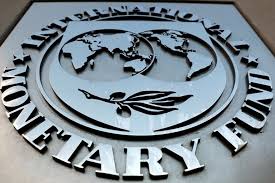Written by Lukman Otunuga, Senior Research Analyst at FXTM
The International Monetary Fund (IMF) rarely has anything positive to say about the Nigerian economy.
On repeated occasions, the institution has urged Nigeria to increase monetary reforms, remove fuel subsidies, implement VAT hikes and push towards exchange rate unification. Recently, the IMF suggested for Nigeria to bin fuel subsidies as part of a critical fiscal consolidation measure to create policy space. Indeed, revenues from oil sales have been drained by fuel subsidies which jumped to N1.43 trillion in 2021. While such a move may reduce pressure on the government, the question remains whether Nigeria is stable enough to shoulder the ramifications of such a move.
Outside of Nigeria, all eyes will be on the US inflation report on Thursday. Inflation in the United States remains at uncomfortable levels with consumer prices accelerating 7% in December, a fresh high since June 1982. January’s inflation data is expected to show inflation surging to 7.3%, it fastest year-on-year growth since February 1982! Given the widespread obsession with inflation, the pending CPI report has the potential to rattle financial markets! Another jump in US consumer price inflation may boost market expectations over a more aggressive hawkish cycle and a possible 50-basis point rate hike in March. This could result in a selloff in global stocks and gold prices, while the dollar appreciates. Traders are currently pricing in more than five quarter-point Fed rate hikes in 2022 which could result in more pain for stocks and gold down the road.
In the commodities arena, oil slipped from multi-year highs as investors weighed the risks to the market’s recent rally. A potential de-escalation in tensions between Russia and Ukraine coupled with the resumption of Iran nuclear talks weighed on the commodity. Oil prices are likely to remain volatile and influenced by pending EIA report scheduled for release later in the week. Given the current fundamentals at play, oil has the potential to reach $100 if not in Q1 then Q2. The key question is what happens when prices hit this psychological level?
In the meantime, higher oil prices remain good news for energy-producing nations like Nigeria. However, the benefits are likely to be cancelled by low oil production and fuel subsidies.
For more information, please visit: FXTM






